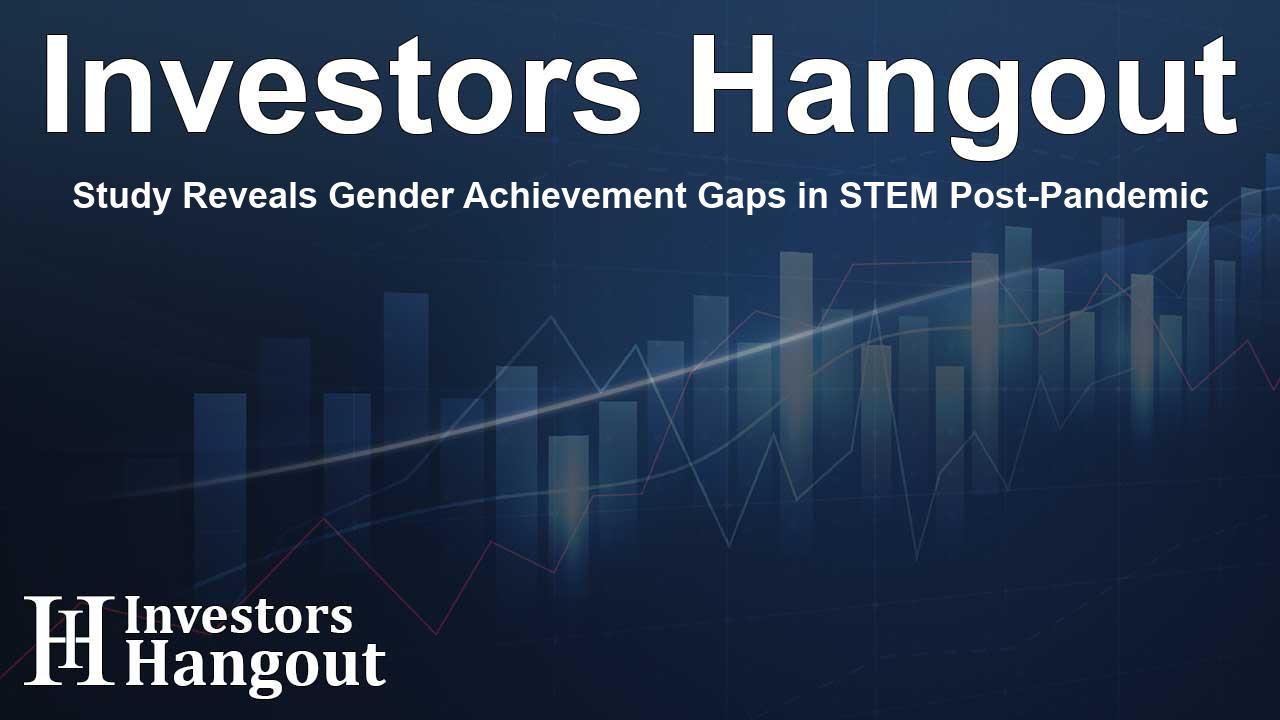Study Reveals Gender Achievement Gaps in STEM Post-Pandemic

New Insight into Gender Gaps in STEM Education
NWEA, a renowned K-12 assessment and research organization, has published insightful findings regarding the impact of COVID-19 on boys and girls in STEM subjects. Their latest report sheds light on a troubling trend, particularly how the pandemic may have widened existing achievement gaps in math and science between genders.
Key Findings from the Research
According to the study, the previous progress made in closing gender gaps in STEM skills has been compromised. Specifically, girls' performance in STEM has seen a notable decline faster than their male counterparts. This regression occurred between 2021 and 2024, marking a stark reversal of decades-long advancements.
Overview of the Analysis
This comprehensive analysis leveraged three national assessments to track gender achievement trends in 8th graders throughout the pandemic. These assessments included the National Assessment of Educational Progress (NAEP), the Trends in International Mathematics and Science Study (TIMMS), and NWEA’s MAP Growth data. This approach allowed researchers to observe patterns that emerged during the pandemic.
Why the Gaps Matter
One of the most alarming trends identified is a decrease in girls enrolling in 8th-grade Algebra. This subject is often a critical facilitator for future success in advanced mathematics and various STEM careers. In contrast, boys’ enrollment in Algebra rebounded to pre-pandemic levels, highlighting a clear disparity in opportunities.
Implications of the Study
The data reveals the pandemic’s disproportionate effects on different groups of students, indicating that while all learners faced challenges, those in specific demographic categories suffered more severely. This insight calls for a dedicated focus on recovery strategies that do not simply return to old norms but actively work to improve participation and performance in STEM subjects.
Strategies for Addressing Gaps
To mitigate these concerning trends, NWEA recommends several targeted strategies. First, it emphasizes the importance of monitoring gender-based participation in key academic milestones over time. Additionally, providing robust support for both academic needs and emotional well-being is crucial. Lastly, a thorough examination of classroom practices can help ensure an equitable learning environment.
Conclusion and Moving Forward
As we navigate the educational landscape post-pandemic, it is essential to recognize the nuances in student experiences and outcomes. The decline in girls' performance in STEM is not just a statistic; it reflects broader challenges that need to be addressed collaboratively by educators, policymakers, and communities alike.
Frequently Asked Questions
What is the focus of the new NWEA study?
The study investigates the impacts of COVID-19 school disruptions on gender achievement gaps in STEM education.
How did the pandemic affect girls and boys differently in STEM?
Findings indicate that girls' performance in math and science declined more sharply than boys', reversing previous progress made in closing achievement gaps.
What are the implications of declining girls' enrollment in Algebra?
Declines in Algebra enrollment among girls may restrict their future opportunities in advanced math and STEM careers, indicating a long-term impact on gender parity in these fields.
Why is monitoring gender gaps in education important?
Monitoring these gaps ensures that educational interventions can be tailored to compete against historic inequities while promoting equal opportunities for all students.
What strategies does NWEA suggest to address these gaps?
NWEA suggests continuous monitoring of participation in key academic areas, providing targeted support for students, and improving instructional practices to foster equity in STEM education.
About The Author
Contact Kelly Martin privately here. Or send an email with ATTN: Kelly Martin as the subject to contact@investorshangout.com.
About Investors Hangout
Investors Hangout is a leading online stock forum for financial discussion and learning, offering a wide range of free tools and resources. It draws in traders of all levels, who exchange market knowledge, investigate trading tactics, and keep an eye on industry developments in real time. Featuring financial articles, stock message boards, quotes, charts, company profiles, and live news updates. Through cooperative learning and a wealth of informational resources, it helps users from novices creating their first portfolios to experts honing their techniques. Join Investors Hangout today: https://investorshangout.com/
The content of this article is based on factual, publicly available information and does not represent legal, financial, or investment advice. Investors Hangout does not offer financial advice, and the author is not a licensed financial advisor. Consult a qualified advisor before making any financial or investment decisions based on this article. This article should not be considered advice to purchase, sell, or hold any securities or other investments. If any of the material provided here is inaccurate, please contact us for corrections.
